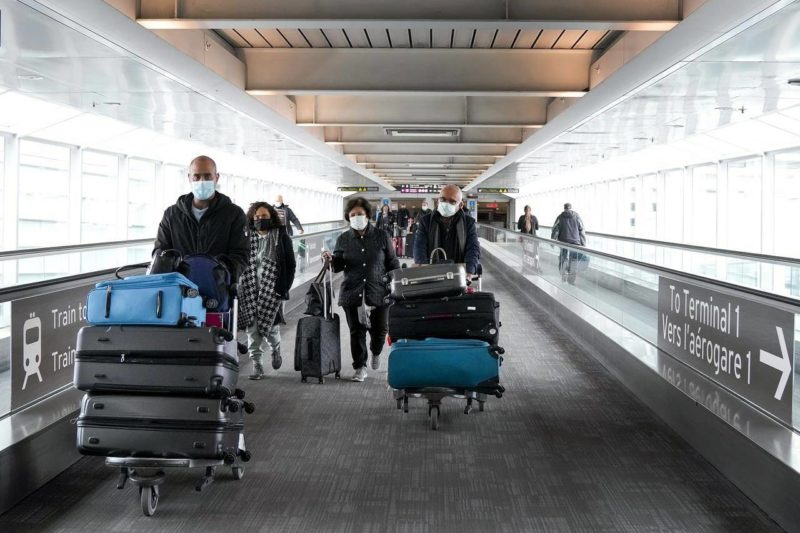The last of Canada’s COVID-19 border restrictions will disappear at the end of this month with the expiry of a cabinet order affecting mandatory vaccinations, testing and quarantine of international travellers.
That expiry also spells the end of insisting travellers use the ArriveCan app to input their vaccine status and test results, though the app will live on as an optional tool for customs and immigration.
It doesn’t yet deal with whether passengers must wear masks on domestic and international trains and planes because that rule is contained in a separate order issued by the minister of transport.
Two senior government sources aware of the decision confirmed the cabinet order maintaining COVID-19 border measures will not be renewed when it expires on Sept. 30.
The sources spoke to The Canadian Press on the condition they not be named because they were not authorized to speak publicly. While the Liberal cabinet did meet Thursday afternoon, cabinet approval is not required to allow the order to expire.
One of the sources said Prime Minister Justin Trudeau, before the cabinet meeting took place, signed off on the decision not to renew the rules.
The change means international travellers will no longer have to prove they are fully vaccinated against COVID-19. Under the current rule, Canadians returning to the country who aren’t vaccinated must show a negative COVID-19 test result before arriving, and undergo further testing after arrival. They also must quarantine for 14 days.
Foreigners who aren’t vaccinated are simply banned from Canada unless they fall into specific categories, such as airline or boat crew members, those who need essential medical treatment, diplomats and temporary foreign workers.
The cabinet order also spells out that vaccinated travellers will be selected for random COVID-19 testing, and requires travellers to submit their vaccine proof and test results electronically.
The only way to do that is through the ArriveCan app.
All of that will end when the clock strikes midnight on Oct. 1.
Tourism Minister Randy Boissonnault would not confirm the decision Thursday afternoon, but he said if the order is allowed to expire, that would also eliminate the only mandatory component for the ArriveCan app.
“So the mandatory piece is the vaccine piece, and because that’s how people prove it through the ArriveCan, that’s how the order is written, from what I remember,” he said on his way into the cabinet meeting.
ArriveCan has morphed into a digitized border arrival tool, and now people flying into certain airports can use it to fill out their customs and immigration form instead of the paper version.
Boissonnault said that is in keeping with the digitization of border forms in a number of countries, including Europe, and long term will make for faster, smoother border experiences.
“If we’re going to want to go from 22 million visitors in 2019, to something closer to 30 million by 2030, we’re going to have to have a digital border,” he said.
The order’s expiration also means the minister of health will no longer be able to quickly bar citizens of specific countries facing COVID-19 outbreaks from coming to Canada. That measure was used to ban people from India and certain African countries at various points, moves criticized by some as racist.
Canada’s COVID-19 border measures have been evolving since the pandemic began in March 2020.
Plan your adventures throughout the West Coast at westcoasttraveller.com and follow us on Facebook and Instagram @thewestcoasttraveller. And for the top West Coast Travel stories of the week delivered right to your inbox, sign up for our weekly Armchair Traveller newsletter!











 Autumn adventures go old school in Kelowna
Autumn adventures go old school in Kelowna